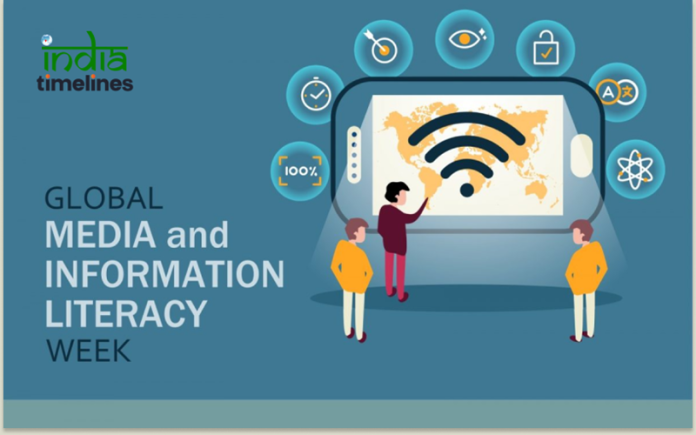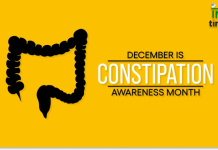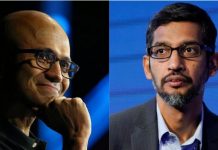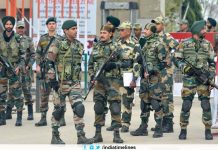
In today’s fast-paced digital world, information is more accessible than ever before. From social media platforms to news outlets, people are constantly bombarded with content. While this accessibility presents incredible opportunities, it also comes with challenges, including misinformation, disinformation, and the need for critical thinking skills. Recognizing the importance of equipping individuals with the ability to navigate this complex media landscape, UNESCO launched Global Media and Information Literacy (MIL) Week. This initiative emphasizes the need for individuals worldwide to be informed, critical, and responsible users of media and information.
Global Media and Information Literacy (MIL) Week is an annual event that fosters awareness and promotes the integration of media and information literacy in education systems, public policies, and public discourse. In this article, we’ll explore the significance of Global MIL Week, its objectives, the challenges of the digital age, and the way forward in creating a media-literate global population.
What is Media and Information Literacy (MIL)?
Before diving into the specifics of Global MIL Week, it’s essential to understand what Media and Information Literacy (MIL) entails. MIL is a set of competencies that enables individuals to critically access, analyze, evaluate, and create information in various formats. It encompasses:
- Media Literacy: The ability to interpret, analyze, and evaluate information from different media outlets, such as television, radio, newspapers, and digital platforms.
- Information Literacy: The skills needed to locate, assess, and effectively use information, particularly in today’s digital world where vast amounts of data are readily available.
- Digital Literacy: The technical skills required to use digital tools and technologies, as well as understanding how digital media platforms influence information dissemination.
Together, these literacies empower individuals to engage with media critically and responsibly, helping them identify reliable sources of information and contribute meaningfully to society.
The Importance of Global MIL Week
Global Media and Information Literacy Week, observed every October, provides a platform for organizations, governments, and individuals to collaborate on promoting media and information literacy. The week emphasizes the importance of integrating MIL into various sectors, including education, policy-making, media production, and civil society.
The primary goals of Global MIL Week include:
- Raising Awareness: The event aims to raise global awareness of the importance of MIL in today’s digital landscape, where misinformation and disinformation can spread rapidly.
- Fostering Collaboration: By bringing together policymakers, educators, media professionals, and civil society, the week promotes collaboration in advancing MIL at both local and global levels.
- Building Capacity: Global MIL Week seeks to enhance the capacity of individuals and organizations to promote media literacy, especially in regions where access to reliable information is limited.
- Promoting Policies and Frameworks: The initiative encourages governments and institutions to adopt policies and frameworks that integrate MIL into education systems and public discourse.
The Role of UNESCO in Global MIL Week
UNESCO (United Nations Educational, Scientific and Cultural Organization) has played a pivotal role in spearheading the Global Media and Information Literacy Week. Since its inception in 2011, UNESCO has been a leader in advocating for the integration of MIL into education systems worldwide. Its role extends to:
- Advocacy: UNESCO advocates for the adoption of MIL policies across nations, encouraging governments to recognize the importance of equipping citizens with the skills necessary to navigate media landscapes critically.
- Guidelines and Resources: The organization has developed guidelines, toolkits, and training materials to help educators, media professionals, and policymakers implement MIL programs.
- Global Coordination: By organizing and coordinating events during Global MIL Week, UNESCO fosters a global movement toward better-informed societies. These events include seminars, workshops, and conferences that address various aspects of MIL.
- Research and Innovation: UNESCO supports research and innovation in the field of MIL, recognizing that media landscapes are continually evolving, and so too must the strategies for teaching and promoting MIL.
Challenges in the Digital Age
While Global MIL Week and MIL initiatives aim to empower individuals, there are several challenges in the digital age that complicate efforts to promote media literacy. These challenges include:
- Misinformation and Disinformation: The rise of social media has made it easier for misinformation and disinformation to spread rapidly. People often encounter false or misleading information that can have serious consequences, including undermining trust in institutions, fostering polarization, and influencing political outcomes. Combatting this requires not just critical thinking skills but also a culture of verifying information.
- Information Overload: With an overwhelming amount of information available online, individuals often struggle to discern between reliable and unreliable sources. The constant influx of content can lead to fatigue, making it easier for people to fall prey to false narratives or biased information.
- Digital Divide: While media and information literacy is essential for all, access to the internet and digital tools is not universal. The digital divide—the gap between those with access to technology and those without—poses a significant barrier to promoting MIL globally. Rural areas, developing countries, and marginalized communities often have limited access to the necessary resources for becoming media literate.
- Algorithmic Influence: Many online platforms use algorithms to personalize the information users see based on their browsing behavior. While this can enhance user experience, it can also create echo chambers—environments where individuals are exposed only to information and opinions that align with their own. This limits exposure to diverse perspectives and can reinforce existing biases.
- Digital Manipulation: The digital landscape also presents new challenges, such as deepfakes and other forms of digital manipulation. With the advancement of artificial intelligence (AI) and other technologies, it’s becoming increasingly difficult to differentiate between authentic and manipulated content. This makes the need for media literacy more urgent than ever.
The Role of Education in Promoting MIL
Education is one of the most effective tools for promoting media and information literacy. Schools and universities play a crucial role in equipping young people with the skills they need to navigate the digital world responsibly. However, integrating MIL into formal education systems presents both opportunities and challenges.
- Curriculum Integration: One of the key objectives of Global MIL Week is to promote the integration of MIL into education curricula. By embedding MIL into subjects such as history, language arts, and social studies, students can learn to critically evaluate information from different media sources.
- Teacher Training: For MIL programs to be successful, educators must be trained in media and information literacy themselves. Many teachers lack the skills needed to teach students how to navigate the digital world effectively. Training programs for teachers are essential to ensure they can guide students in becoming media-literate citizens.
- Critical Thinking: Education systems must focus on fostering critical thinking skills. In the digital age, simply consuming information is not enough. Students must be able to analyze, question, and evaluate the information they encounter, whether it’s from social media, news outlets, or other sources.
- Global Collaboration: Educational institutions around the world are increasingly collaborating to share best practices in promoting MIL. Initiatives like Global MIL Week provide opportunities for cross-border collaboration and knowledge exchange, helping educators implement effective MIL programs.
How to Foster Media and Information Literacy in Society
Promoting media and information literacy is not the responsibility of educators alone. Governments, media organizations, tech companies, and civil society must all play a role in fostering a media-literate society. Some strategies include:
- Public Awareness Campaigns: Governments and civil society organizations can launch public awareness campaigns to educate citizens about the importance of media literacy. These campaigns can focus on how to identify reliable sources, spot misinformation, and understand the impact of algorithms on information consumption.
- Media Responsibility: Media organizations must prioritize accuracy and transparency. Journalists and news outlets play a critical role in shaping public perceptions, and they must commit to ethical standards in reporting. Initiatives like fact-checking platforms can help combat misinformation and build trust with audiences.
- Tech Industry Accountability: Tech companies, particularly social media platforms, have a responsibility to ensure that their algorithms and policies do not promote the spread of disinformation. They must invest in tools that enable users to verify the authenticity of information and make informed decisions about what they consume online.
- Lifelong Learning: Media and information literacy is not just for young people. Adults, too, must continue learning and adapting to the ever-changing digital landscape. Community workshops, online courses, and public resources can help people of all ages develop their MIL skills.
India Time lines
Conclusion: A Path to Empowerment
Global Media and Information Literacy Week is more than just a celebration; it is a call to action. In an era where information is abundant but not always accurate, the need for media and information literacy has never been more critical. By fostering collaboration across sectors—education, media, technology, and policy—Global MIL Week empowers individuals to become informed, critical, and responsible citizens.
Media and information literacy is a fundamental skill in the digital age. It enables people to navigate the complexities of the modern information environment, recognize misinformation, and participate actively in democratic processes. As we look to the future, promoting MIL will be essential in ensuring that societies are not only well-informed but also resilient against the challenges posed by disinformation and digital manipulation.
Through initiatives like Global MIL Week, we can build a world where everyone has the skills to access, evaluate, and create information, ultimately leading to a more informed and empowered global citizenry.



































